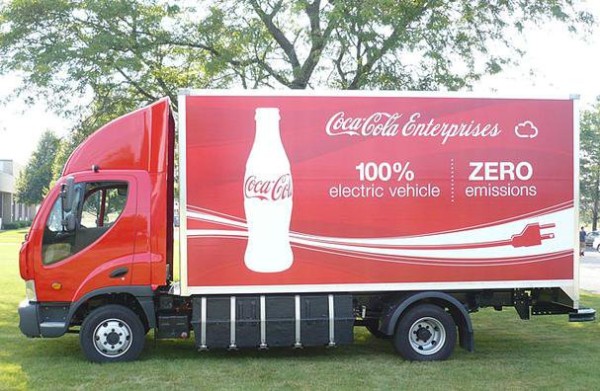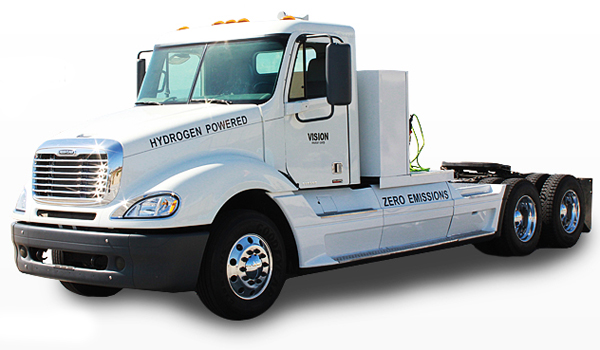Smith Electric Vehicles, as we highlighted a few months back, is an American electric vehicle success story. The company at that point had produced more than 700 of its all-electric delivery trucks and that, collectively, those already on the roads had cumulatively generated over five million miles. It is now involved in a pilot project in the Houston-Galveston, Texas area in collaboration with the Center for Transportation and the Environment replacing diesel delivery vehicles with all-electric medium- and heavy-duty models. It is one of two zero-emissions fleet demonstration projects going on in a city normally heavily associated with the oil industry.
Funded in part by a $2.43 million grant from the U.S. Department of Energy’s National Energy Technology Laboratory (NETL) that’s being matched by millions from the private sector, the H-GAC Zero Emission Truck project aims to deploy 30 zero emission trucks that combined are expected “to reduce petroleum consumption by over 250,000 gallons of diesel fuel over the 2-year demonstration period. The project will have additional impact with an expected reduction in GHG emissions by 37.5 million tons of carbon equivalents per year and an expected reduction in criteria pollutants of over 2,000 tons per year.”

As part of the pilot project each vehicle will be delivered with an electric vehicle charging station that can fully recharge one of the trucks in “approximately 6 to 10 hours per night, depending on the size of the battery pack and the state of charge when the vehicle returns to the fleet depot.”
Companies which will be making use of the vehicles, according to a recent presentation [PDF] from the Houston-Galveston Area Council (who’s also a partner in the project), include UPS, Frito-Lay, FedEx, Coca-Cola and Cintas. Many of these are already using electric vehicles in their fleets in other parts of the country. What’s being done with these trucks will include vehicle testing, data collection and reports demonstrating emission reductions.
When all is said and done, besides reducing the use of diesel fuels and associated carbon emissions, there’s hope that there will be a 50 percent improvement in freight hauling efficiency. This will be evaluated by comparing the performance and reliability of the electric trucks against the typical diesel vehicle.
Monthly collection of operating data for the project as it gets underway will continue through September 2015. It is one of two zero emissions projects going on in the area, that all total have a combined $5.8 million in support coming from the federal government, with “project partners” said to be providing a cost share of at least more than $6.1 million.

The other $3.4 million in federal funding (matched by a hefty sum from the private sector) awarded into this zero emissions renaissance in Houston will support the use of “20 hydrogen-electric heavy-duty drayage trucks built by Vision Industries Corporation in collaboration with Total Transportation Services, Environmental Defense Fund and Air Products and Chemicals.” What’s dubbed “the the largest demonstration project of its kind” by Fuel Fix will find this fuel cell vehicle fleet taking containers from ships in the Port of Houston and dropping them off at a Wal-Mart warehouse.
This presentation [PDF] provides a few more details on this fuel cell pilot, including noting one of its main goals is to “reduce criteria pollutant emissions, greenhouse gas emissions and fossil fuel use” of the vehicles typical of this type of heavy freight work. In this program’s timeline operations are set to run through November 2015 before data collection is done to hopefully note the reduction of greenhouse gas emissions by 78 metric tons per year per truck. The project is expected to “reduce petroleum consumption by over 1.1 million gallons of diesel fuel over the lifetime of the vehicles” as well.